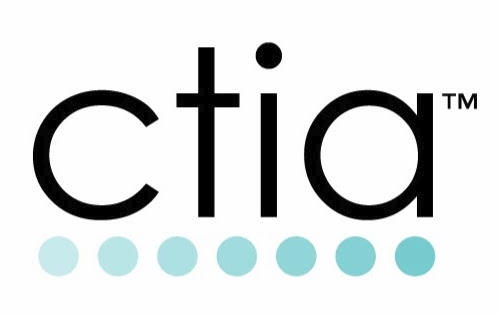 The wireless industry’s largest lobbying group, CTIA-The Wireless Association, filed suit in a Utah federal court Wednesday to stop the state from imposing a 36 cent surcharge wireless carriers like AT&T, Sprint, and Verizon Wireless cannot easily pass on to their customers.
The wireless industry’s largest lobbying group, CTIA-The Wireless Association, filed suit in a Utah federal court Wednesday to stop the state from imposing a 36 cent surcharge wireless carriers like AT&T, Sprint, and Verizon Wireless cannot easily pass on to their customers.
The new fee, retroactively charged from the beginning of 2018, applies to all telephone lines other than prepaid wireless phones, and represents the chief funding mechanism for Utah’s Universal Public Telecommunications Service Support Fund, which supports providing service in high cost rural areas of Utah and the expenses attributed to Utah’s participation in the federal Telephone Lifeline program, which provides subsidized telephone service to the poor.
The CTIA is upset because its member companies will have to assess the surcharge on almost every customer with a landline or wireless postpaid phone in the state, including customers getting free wireless service through the federal Lifeline program. The CTIA argues that puts an unfair burden on companies, especially those asked to either eat the cost of the surcharge or attempt to collect 36¢ a month from Lifeline customers that currently do not receive bills from their providers.
The lobbying group called its options “a Hobson’s choice” between two bad ideas. Because wireless carriers don’t want to absorb the surcharge and pay for it out of current revenue, the alternatives are to either pass along the cost to customers or raise rates. CTIA’s complaint predominately focuses on what it calls the “absurd real world results” of wireless companies struggling to get paid back the 36¢ monthly surcharge:
Participants in these [Lifeline] programs are frequently members of “unbanked” communities, and even a monthly rate of $0.36 may prove an insurmountable obstacle to participation in the Lifeline program. Those without bank accounts or a credit card have no effective means to remit a surcharge of $0.36. If they choose to mail cash, they would have to spend more on postage than on the surcharge itself. Or they may need to purchase a money order, if such are available in increments of $0.36, and pay both the charges applicable to obtaining a money order and the cost of postage – all well in excess of the $0.36 due under the PSC Rule.
[…] The PSC Rule has a chilling effect on the introduction of service offers in the market today. Carriers that have an interest in introducing innovative service plans that have or are likely to have intrastate revenues near, at, or below $0.36 will have to determine whether to select a collection method illegally imposed on them under the PSC Rule or to not offer such service plans at all.
[…] Further, requiring the underlying wireless carrier to pay the required $0.36 per month UUSF surcharge in such third-party retail prepaid situations would not cure this discrimination, as the wireless carrier generally has no billing relationship with the end-user customer, and therefore no ability to pass the charge through to the end-user customer. Requiring wireless carriers to remit the UUSF surcharge in those situations, notwithstanding their inability to pass the surcharge through to the end-user customer, is equally discriminatory vis-à-vis service providers who can pass through the UUSF surcharge to customers.
 The CTIA doesn’t dwell on the real world impact of its member companies, with revenues well into the billions of dollars, simply absorbing the 36¢ a month charged to their Utah customers as a cost of doing business. Instead, the lawsuit argues Utah cannot apply USF surcharges in a way that is “inconsistent with the requirements related to the federal universal service Lifeline program.”
The CTIA doesn’t dwell on the real world impact of its member companies, with revenues well into the billions of dollars, simply absorbing the 36¢ a month charged to their Utah customers as a cost of doing business. Instead, the lawsuit argues Utah cannot apply USF surcharges in a way that is “inconsistent with the requirements related to the federal universal service Lifeline program.”
CTIA argues the surcharge, when applied to Lifeline customers, unfairly increases rates for the most-needy. But the lobbying group was equally concerned the charges would not apply to competing prepaid wireless providers, because the Utah Public Service Commission lacks statutory authority to impose surcharges on those providers. The CTIA argues the surcharge is discriminatory and not competitively neutral, because the it allows third-party retailers of prepaid wireless telecommunications services like Tracfone to avoid the surcharge.
The CTIA is seeking a permanent injunction to stop the surcharges and has asked the court to order the defendants — essentially Utah’s taxpayers — to pay its court costs.


 Subscribe
Subscribe
Poor, poor them. I guess they need to pay 45c instead of 36c.